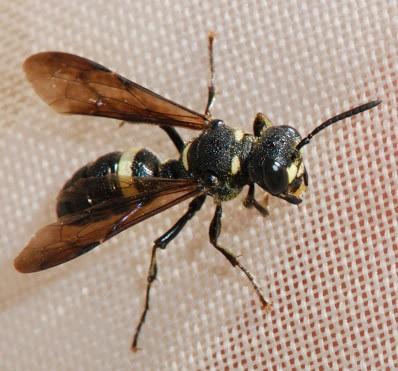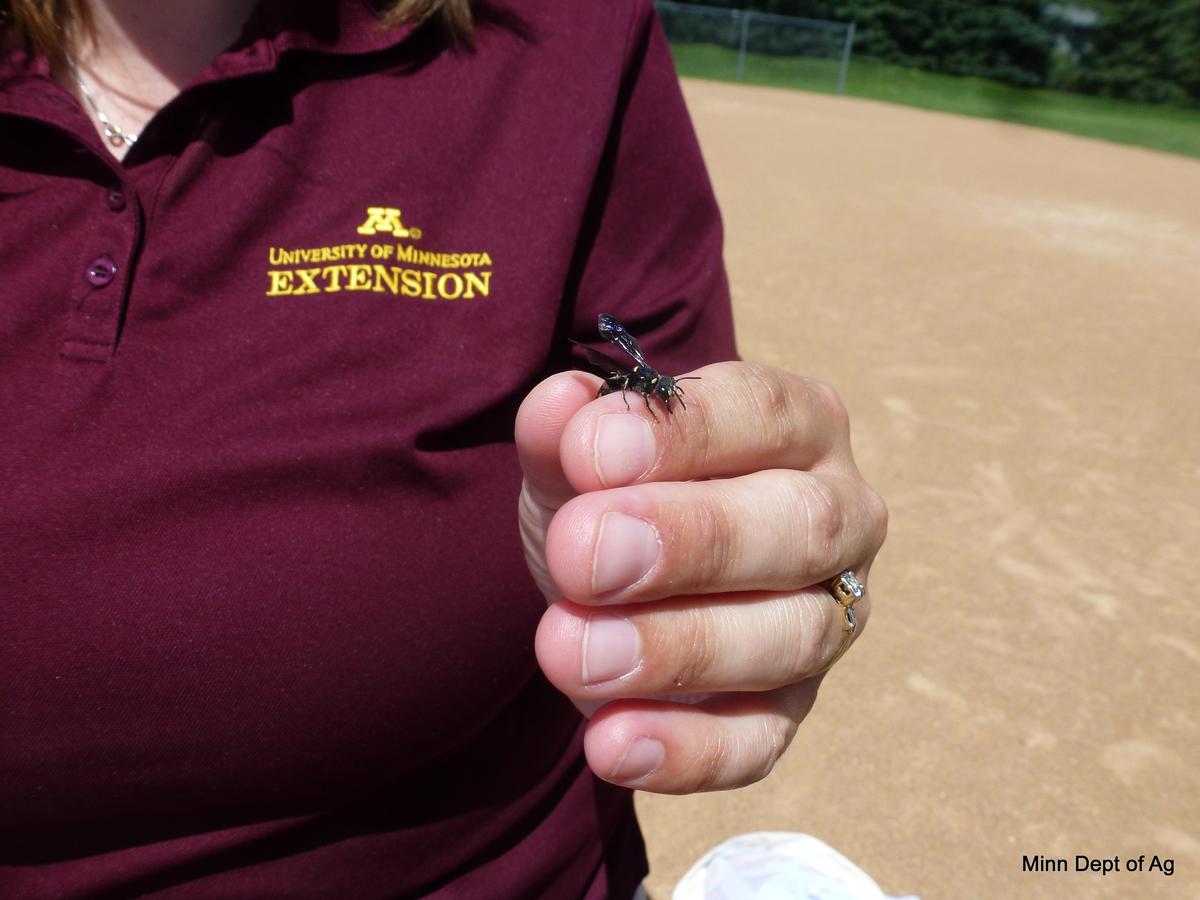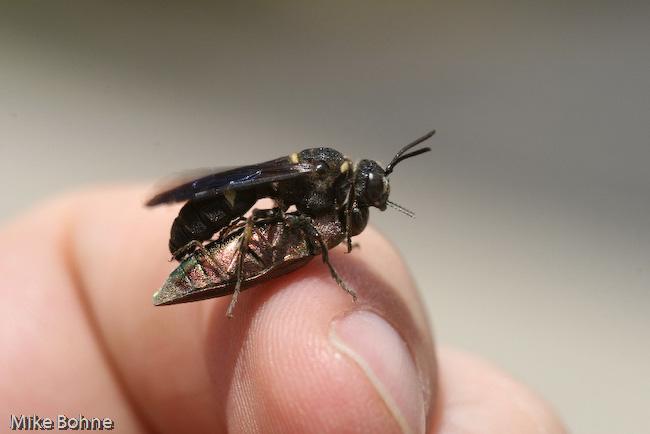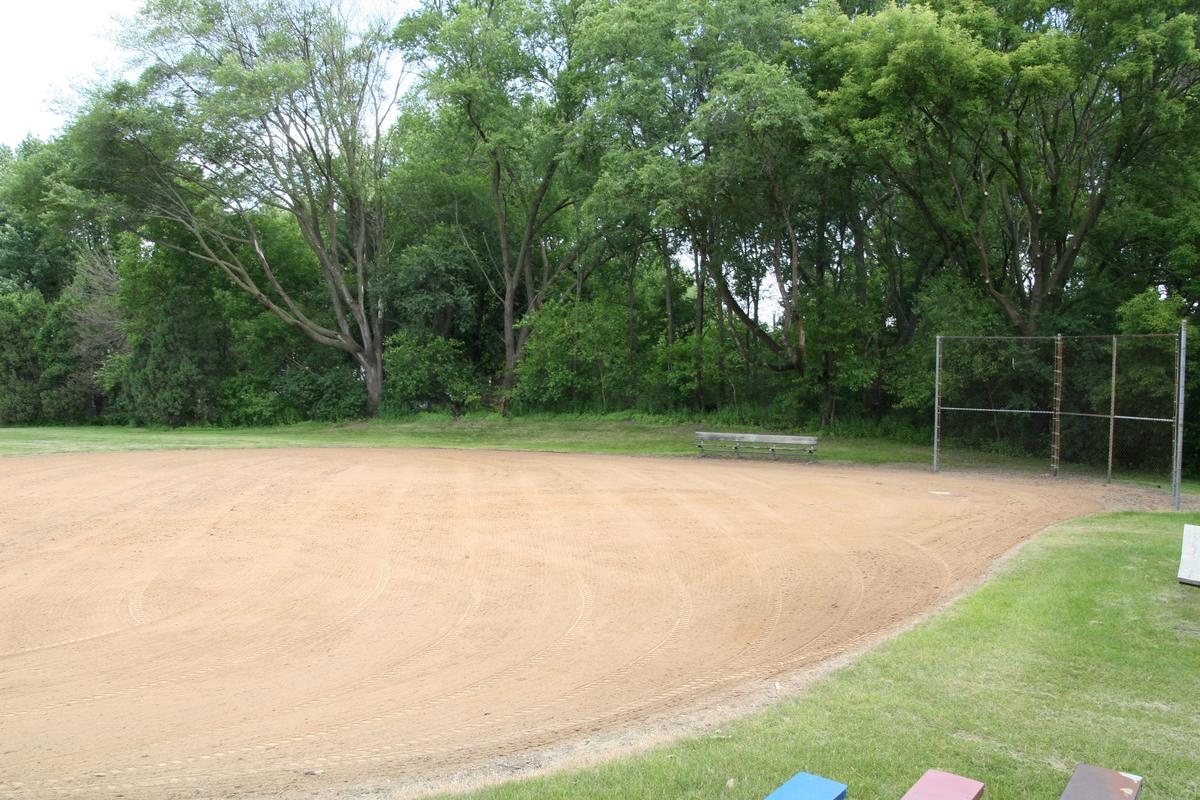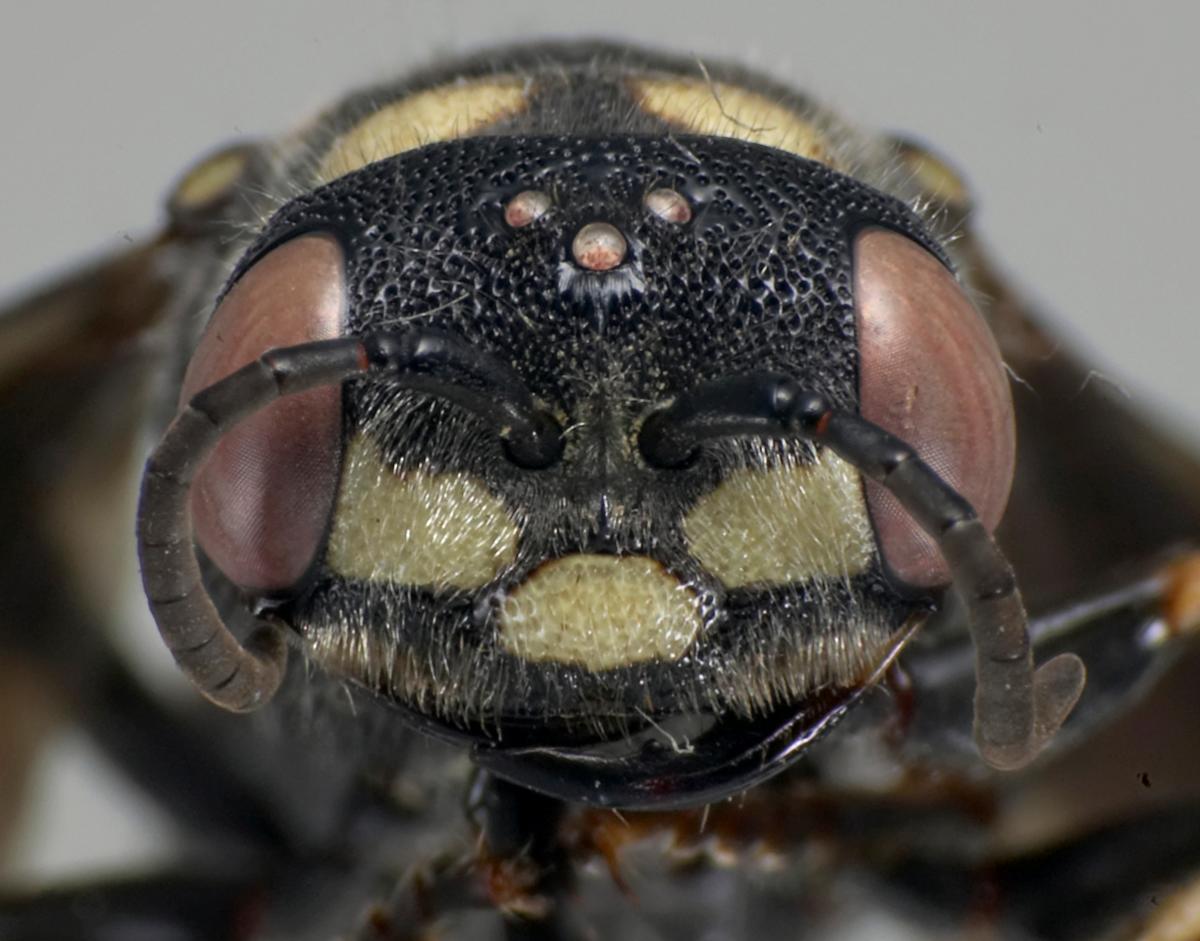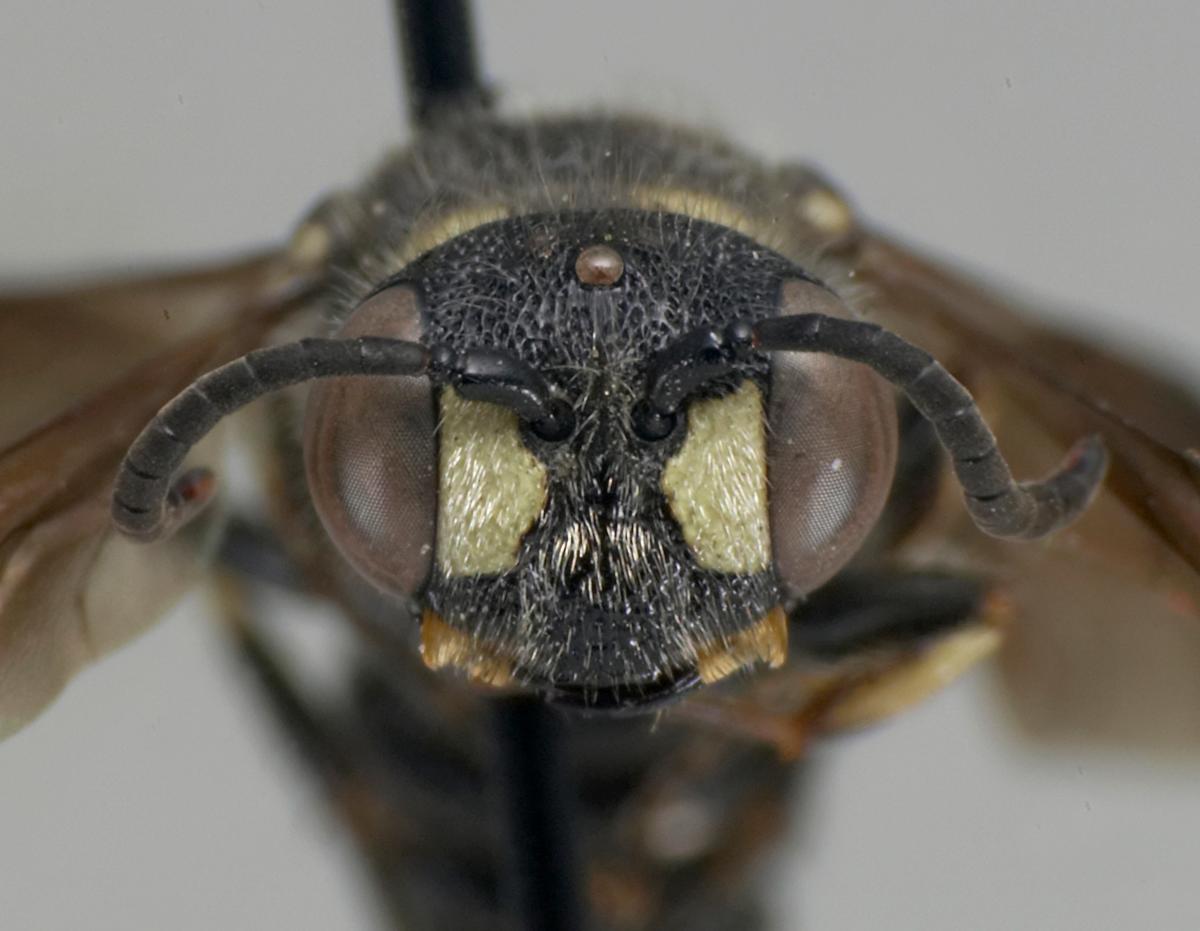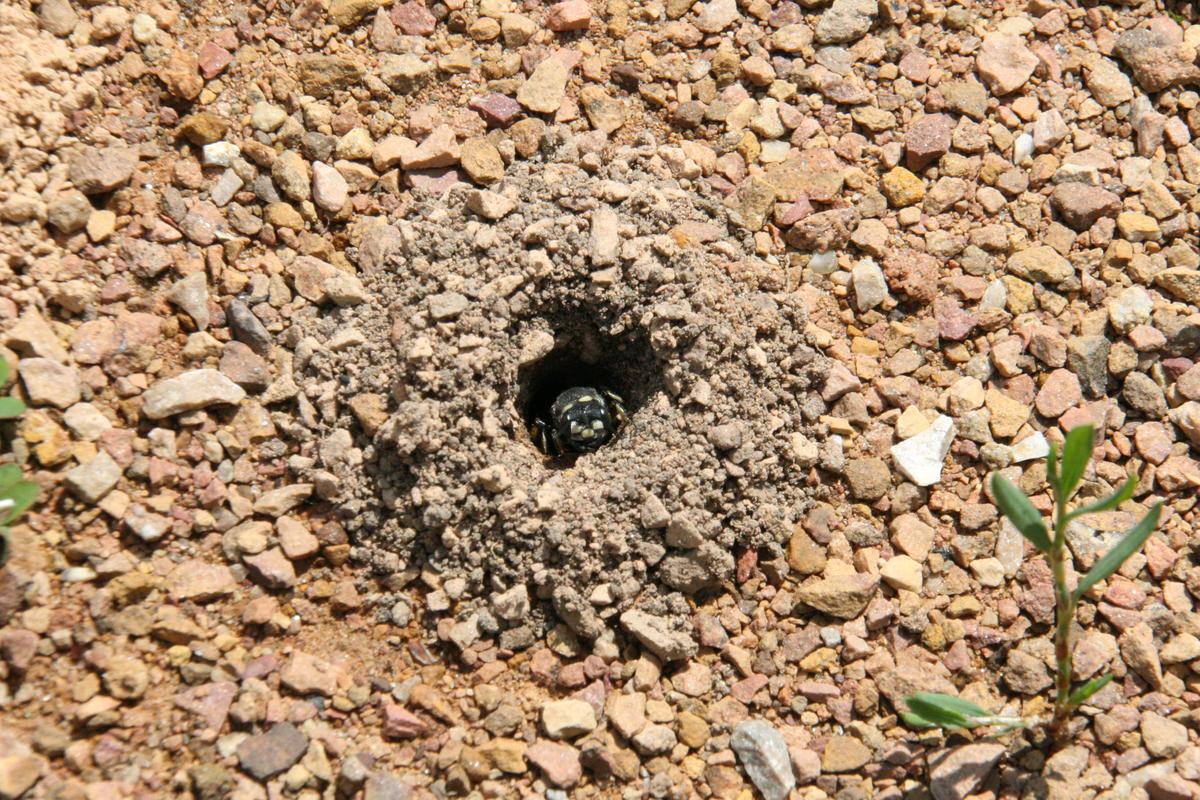The smoky winged beetle bandit (Cerceris fumipennis) is a native, harmless, ground-nesting wasp that hunts for wood boring beetles including Emerald Ash Borer (EAB).
The smoky winged beetle bandit is a harmless, solitary, non-aggressive wasp. It is not known to sting people, even when handled.
The female Cerceris wasps hunt for beetles in the trees and bring their prey back to their nest holes in the ground to feed to their offspring. An observer can easily watch a wasp colony and collect their beetle prey to check for EAB presence.
Cerceris fumipennis prefer to nest in sandy, compact soil and less used baseball fields are an ideal habitat. Other possible habitats include sandy walking trails, informal roads or parking lots, campsites, and farm or logging roads.
Keys to Identifying the smoky winged beetle bandit:
- 1/2 inch-3/4 inch long
- Mostly black in color
- One cream/yellow band on 2nd segment of abdomen
- Dark smoky brown wings
- Female has 3 yellow spots on face, male has 2 yellow spots on face
Keys to Identifying a Cerceris Nest:
- Openings are round with diameter of a pencil.
- Nest hole opening is surrounded by a small circular mound of earth.
- Holes typically go straight down, not angled.
- Sometimes the nest is confused for an ant hill. Ant hills are generally busy places. Watch it for a few minutes and you should see ant activity. If there is no activity for many minutes, it could be a Cerceris nest.
